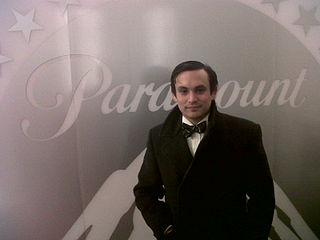A Quote by Marilynne Robinson
My heroes are, above all, the great 19th-century Americans: Emerson, Whitman, Dickinson and the others. I love the way they think.
Related Quotes
The Anglo-American tradition is much more linear than the European tradition. If you think about writers like Borges, Calvino, Perec or Marquez, they're not bound in the same sort of way. They don't come out of the classic 19th-century novel, which is where all the problems start. 19th-century novels are fabulous and we should all read them, but we shouldn't write them.
The Toothbrush mustache was first introduced in Germany by Americans, who turned up with it at the end of the 19th century the way Americans would turn up with ducktails in the 1950s. It was a bit of modern efficiency, an answer to the ornate mustaches of Europe - pop effluvia that fell into the grip of a bad, bad man.
I was really interested in 20th century communalism and alternative communities, the boom of communes in the 60s and 70s. That led me back to the 19th century. I was shocked to find what I would describe as far more utopian ideas in the 19th century than in the 20th century. Not only were the ideas so extreme, but surprising people were adopting them.
I've had the good fortune to read a lot of great American writers in translation, and my absolute beloved, for me one of the greatest writers ever, is Mark Twain. Yes, yes, yes. And Whitman, from whom the whole of 20th-century poetry sprung up. Whitman was the origin of things, someone with a completely different outlook. But I think that he's the father of the new wave in the world's poetry which to this very day is hitting the shore.







































